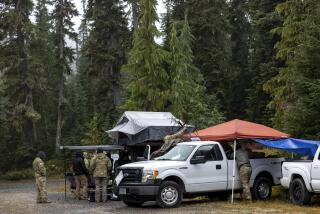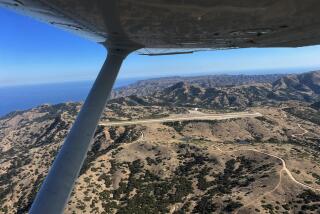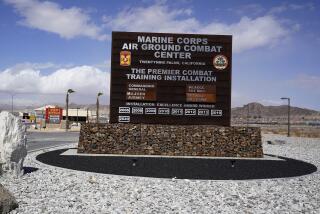Marines killed in crash in Imperial County this week remembered for their passion, dedication
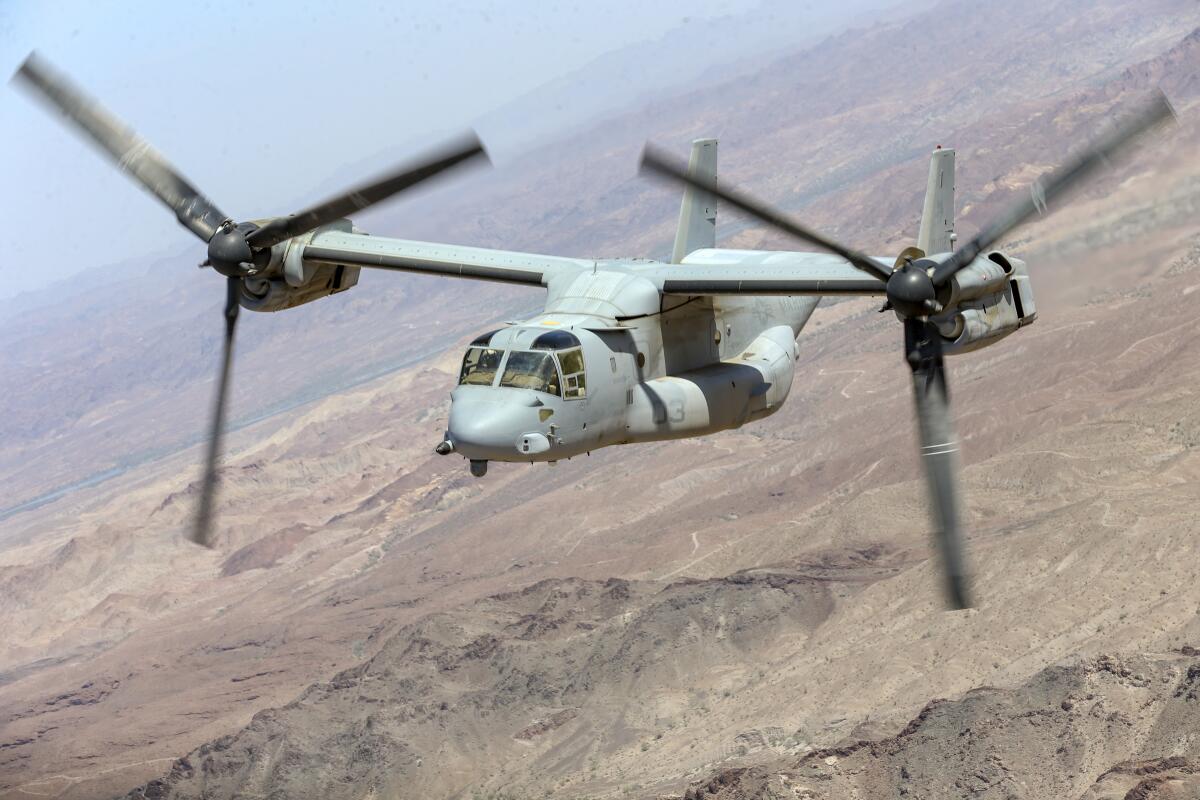
They seemed on golden paths.
The young men who died aboard a Marine Osprey aircraft that crashed this week in the Imperial County desert stood out for earnestness that belied age.
“He was always ‘full send.’ Everything was ‘full send,’” said Keith McDonald, using the slang for irreversible commitment to describe his nephew, Cpl. Nathan Carlson, one of five Marines who died Wednesday. “He saw the world as an opportunity.”
They were Purple Foxes, the insignia for Marine squadron VMM-364 out of Camp Pendleton. The squadron’s legacy dates to the Vietnam War, but since 2014 has been tasked to the tilt-rotor Osprey, a large aircraft with rotors on the ends of its wings so that it can fly both as helicopter and as plane.
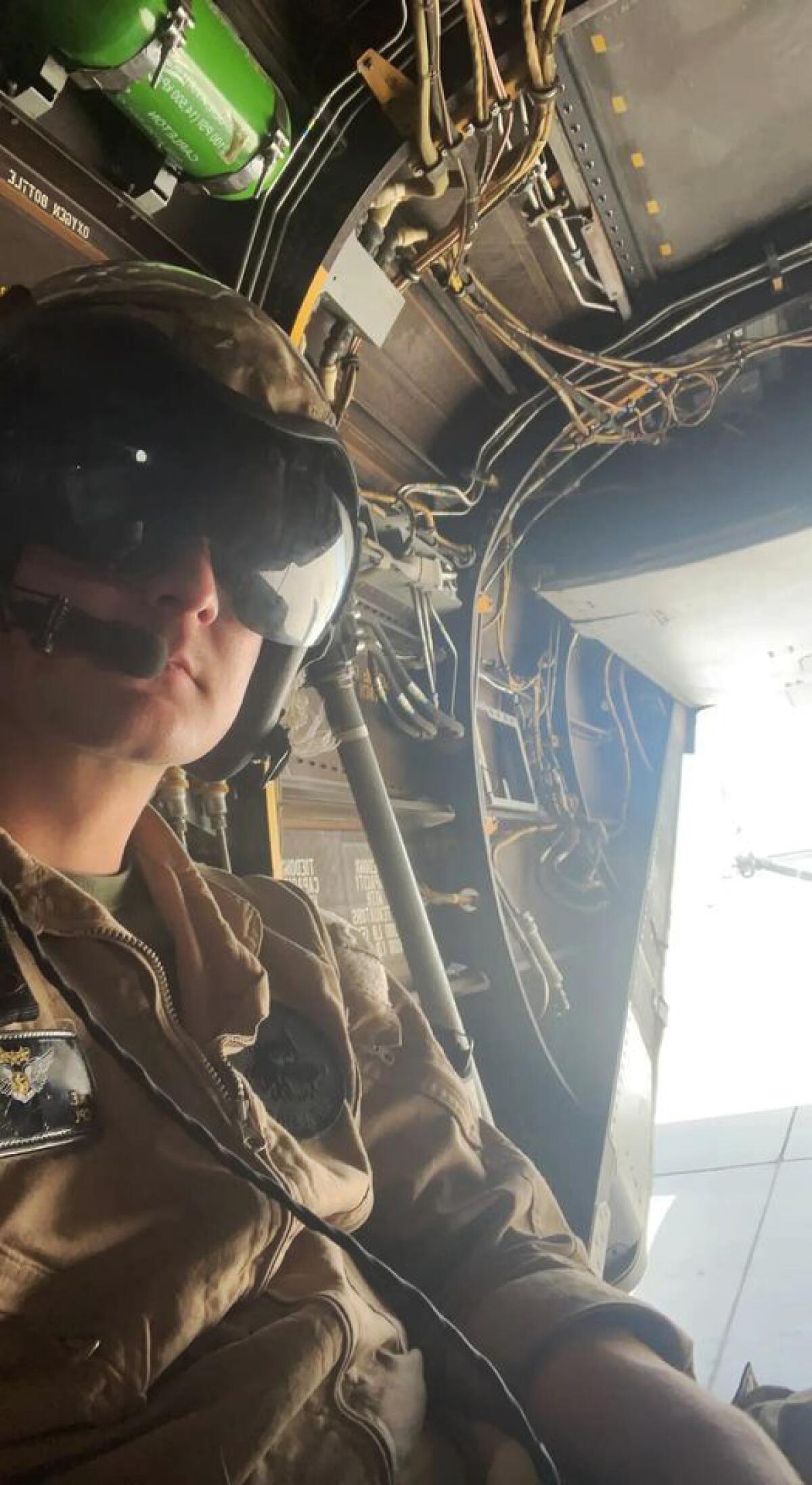
Carlson, a crew chief responsible for the operation of the aircraft, had just turned 21 the month before, and was married five months before that. Less than three years out of high school in a small town in northern Illinois, he had already served missions in Africa, Afghanistan and Syria.
Two other crew chiefs on board the training flight were equally young: Cpl. Seth D. Rasmuson, 21, and Lance Cpl. Evan A. Strickland, 19. Rasmuson came from Wyoming, and was also married, with an infant. Strickland was from New Mexico, in the service for one year and seven months.
Of the two pilots, Capt. Nicholas P. Losapio, 31, had been in the Marines slightly more than eight years.
The other pilot, Capt. John J. Sax, 33, joined nearly six years ago, according to his family in Northern California. He had a wife, Amber, daughter Ellie, and a second child on the way.
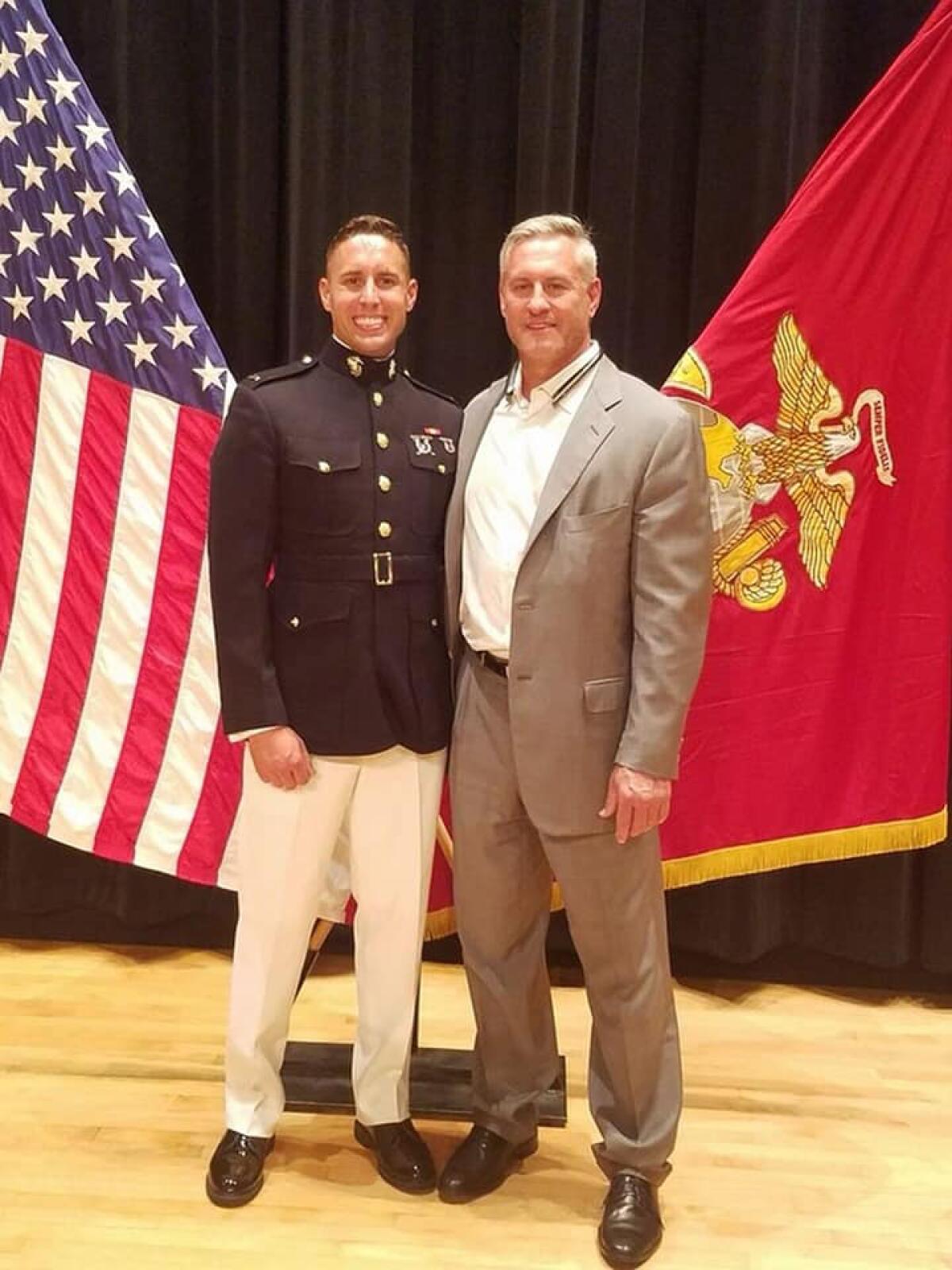
“For those of you that knew Johnny, you saw his huge smile, bright light, his love for his family, the Marines, the joy of flying airplanes and defending our country,” said his father, Steve Sax, a retired Major League Baseball player who once played for the Los Angeles Dodgers. In a statement released through his publicist, Sax called his son his “hero and the best man I know.”
John Sax knew from a young age that he wanted to fly and would study airplanes and could name them from the ground as they flew overhead, the statement said. “Flying for the Marines would be the pinnacle of success for him.”
Carlson’s father was a Marine, and his father and grandfather before them served in the military. Family members said there was no doubt Carlson would follow suit.
“One of his first words had to have been ‘Marines,’” said his cousin, Tanner McDonald. “Looking at old photos, every picture of him he’s wearing camo, or wearing a Marine shirt ... from 4 years old to 10 years old, he’s always been about the Marines.”
He said he had sought to join up with Carlson, then stationed in Arizona, for his 21st birthday — “I wanted to have his first legal beer with him” — but Carlson was shipped back to California. McDonald and others were on the phone, planning a Fourth of July family gathering where they might all meet again when they received news of the Osprey crash.
Illinois Rep. John Cabello, a family friend, posted a tribute to Carlson online.
“Nathan loved being a Marine and flying in his Osprey,” Cabello posted to Facebook. “What Nathan didn’t know was how he made the lives of those he knew better. Being around Nathan was always a great time.”
Carlson was in boot camp nine days after graduating from high school. The former captain of his high school swim team, he discovered out-swimming his drill instructors didn’t bring praise but penalty of extra orders. Some days, he did it anyway.
“He wasn’t one to shy away from a challenge,” his uncle said. “He welcomed a challenge.”
The cause of the crash remains under investigation, Marine officials said Friday. The crew were on a training flight near Glamis when the MV-22 Osprey crashed.
Versions of the Osprey are flown by the Marines, Navy and Air Force to transport troops and equipment. It has a higher top speed and longer range than a helicopter but is able to hover and land in a similar manner.
The aircraft, however, has a troubled and controversial history since its first test flights in 1989.
Wednesday’s crash was one of two involving military aircraft in Imperial County during a two-day span this week.
On Thursday, a Navy helicopter went down near Palo Verde during a training flight.
More to Read
Sign up for Essential California
The most important California stories and recommendations in your inbox every morning.
You may occasionally receive promotional content from the Los Angeles Times.
